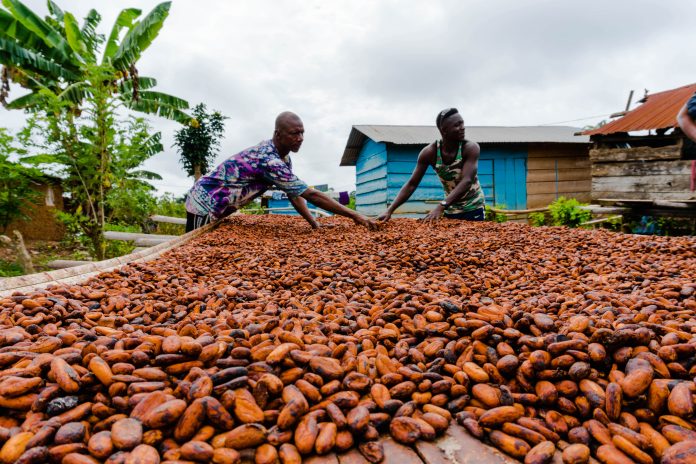Somali Magazine – Ghana, the world’s second-largest producer of cocoa, after the Ivory coast, is currently facing a crisis in its cocoa industry. The country’s cocoa farmers are struggling due to a cash shortage, with many complaining that they are broke as the cocoa board (Cocobod) to which they are legally obliged to sell their produce, is unable to pay them.
The cocoa industry makes up around 15% of Ghana’s exports. However, Cocobod has been losing money for the past six years, according to MP Eric Opoku, who is on the parliamentary committee that oversees the board. Cocobod is still trying to secure a loan to pay for the 2023/24 harvest, but parliament will still need to approve that.
The situation has become so dire that some farmers might be forced to smuggle their remaining beans into neighbouring Ivory Coast in order to sell them. This could potentially have a significant impact on the country’s economy, given the importance of the cocoa industry to the country.
In a statement, Cocobod assured stakeholders that it has made the necessary arrangements to secure enough funding for cocoa purchases for the year under review¹. However, the board has failed to account for the money it borrowed in 2020, which has detered securing the approval of parliament.
This crisis in the cocoa industry is a significant issue for Ghana. The country’s economy relies heavily on the cocoa industry, and the current cash shortage could have far-reaching implications not just to the country but the entire region as well as most other cocoa importing countries in the world. It is crucial that a solution is found quickly to ensure the survival of the industry and the livelihoods of the many farmers who depend on it.
The situation also highlights the need for reforms in the industry to ensure that such a crisis does not occur again in the future. This could include measures to improve the financial management of Cocobod, as well as initiatives to support farmers and ensure they receive fair payment for their produce.
In the meantime, the farmers are left in a difficult situation. They have done all the work and shouldered the costs, but are not receiving the payment they are due. It is hoped that the necessary funds can be secured soon to alleviate their financial hardship.
This crisis serves as a reminder of the challenges faced by many in the agricultural sector, particularly in developing countries like Ghana. It underscores the importance of supporting these industries and ensuring they are sustainable and resilient.

